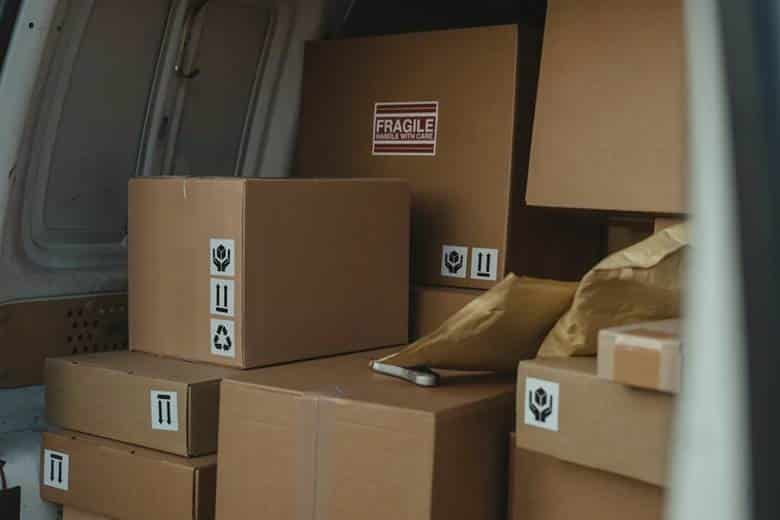An estate cleanout can feel like a daunting task, especially if it’s your first time or you’re juggling a busy schedule. From sorting through belongings with sentimental value to locating important documents and deciding how to dispose of items, the process can quickly become overwhelming.
That’s where professional estate cleanout services come in. They offer a step-by-step guide to help you stay organized and simplify every decision. By planning ahead and working with a team you can trust, you’ll be able to focus on what truly matters while ensuring the process is handled with care.

Why Estate Cleanouts Matter
An estate cleanout is more than just removing clutter. It’s an opportunity to handle personal belongings with respect and care. It allows you to:
- Declutter the home and create space for a fresh start, whether you’re preparing to sell, renovate, or simply move on.
- Honor the memory of a loved one by thoughtfully reviewing their items, preserving what matters, and letting go of what no longer serves a purpose.
- Reclaim valuables by donating or selling select possessions, which can bring both practical benefits and a sense of accomplishment.
- Stay compliant with local rules when disposing of specific materials, which often depends on the number of items or the size of the estate.
By approaching the cleanout with a plan, you can simplify the process and complete it in manageable steps over a few days or weeks, rather than letting it drag on. This helps reduce emotional strain and makes the entire experience more meaningful and efficient.
Planning Your Estate Cleanout
A clear plan makes the work feel manageable. To get started, follow these steps:
- Define your scope
- Identify rooms or storage areas that need attention first
- Set a realistic deadline for each area
- Set a budget
- Estimate costs for labor and hauling
- Leave room for disposal fees or rental of a storage unit
- Gather materials
- Sturdy boxes and plastic bins
- Labels, markers, and tape
- Packing paper and bubble wrap
- Assemble your team
- Enlist friends or family for sorting tasks
- Decide if you need professional cleaners or movers
Understanding Legal and Emotional Aspects
Handling someone else’s estate can involve legal paperwork and emotional decisions. Keep in mind:
- Legal forms: You may need power of attorney or probate documents before distributing property
- Appraisals: Valuable antiques or artwork should be evaluated by a certified appraiser
- Emotional support: Allow yourself breaks and lean on friends to help you process memories
Addressing these factors early prevents surprises and helps you move forward with confidence.
Assess and Organize
Begin by walking through every room and storage space. Use this time to:
- Photograph high-value items for insurance records
- Make notes about items that require special care or professional appraisal
- Identify fragile objects and group them together
This initial review gives you a comprehensive view so you can plan each phase effectively.
Sort into Categories
Sorting your items into clear groups speeds up the process. Create the following categories:
- Keep: Items you or your family want to retain
- Donate: Usable belongings that can help others
- Sell: Valuable items that can generate funds
- Recycle: Materials suitable for recycling centers
- Trash: Items with no reuse value
Use color-coded labels or stickers on bins to avoid mixing categories.
Decide What to Sell or Donate
When sorting out belongings:
- Research the market value
- Check online listings or auction results
- Visit local consignment shops for estimates
- Choose your selling method
- Online marketplaces for electronics or furniture
- Estate sale events for bulk sales
- Auctions for antiques or high-value collections
- Prepare donations
- Verify charity guidelines on accepted items
- Schedule drop-off or pickup dates
- Keep donation receipts for potential tax deductions
Understand Costs
Before you begin hauling items away, review a detailed cost breakdown of estate junk removal. Typical expenses include:
- Labor and transportation fees
- Disposal charges at waste or recycling centers
- Special handling fees for electronics or hazardous materials
Knowing these costs ahead of time helps you set an accurate budget and avoid last-minute surprises.
Hire a Professional Service
If you are juggling work, family, or other commitments, a professional team can streamline the process. Look for a company that offers:
- Free on-site estimates so you know the cost before you commit
- Transparent pricing with no hidden fees
- Trained staff who handle items carefully
- Eco-friendly disposal and recycling whenever possible
A reliable service will adapt to your timeline and keep you informed at every stage.
Pack and Protect
Proper packing ensures safe transport and storage. Keep these tips in mind:
- Wrap breakables in padding and secure with tape
- Pack heavier items in small boxes to avoid overloading
- Label each box clearly with contents and intended destination
Maintain an inventory list so you can track items as they move into storage or a new home.
Dispose Responsibly
Protecting the environment is an important part of any cleanout. Whenever possible:
- Recycle paper, cardboard, metal, and glass
- Donate working electronics to nonprofits
- Take hazardous materials like paint or chemicals to certified disposal centers
Many removal companies partner with recycling facilities to divert waste from landfills.
Digital Cleanup
In today’s world, estates often include digital assets. Do not overlook:
- Old computers and hard drives that store family photos
- Online accounts and subscriptions that should be closed
- Password managers or secure documents that need updating
Securely back up important files before wiping devices for donation or recycling.
Final Walk-Through
After the main removal, conduct a thorough inspection:
- Check closets, cabinets, and storage drawers
- Look behind furniture and inside appliances
- Wipe down surfaces and vacuum to leave the space clean
This final step ensures nothing is left behind and the property is ready for its next phase.
Tips for Staying on Track
- Break the work into small tasks: Set daily goals for sorting one shelf or drawer
- Use timers: Work in 30-minute intervals to maintain focus
- Reward yourself: Take a short break or treat yourself after completing a section
- Get extra hands: Volunteer friends for lighter tasks like bagging trash
Common Mistakes to Avoid
- Ignoring emotional burnout by working too long without breaks
- Mixing valuable items with trash by not labeling clearly
- Skipping cost estimates and facing unexpected bills
- Overlooking local recycling options that reduce fees
Being aware of these pitfalls will keep your project moving smoothly.
Frequently Asked Questions
- How long does an estate cleanout usually take?
- Depending on the property size and item volume, it can take one day to several weeks. A professional team typically completes a two-bedroom home in one to two days.
- Can I keep certain items out of the cleanout?
- Yes. Mark off items you wish to keep before the cleanout starts. Store them in a locked room or cabinet so they are not accidentally removed.
- What happens to hazardous materials?
- Many junk removal services partner with certified disposal centers for paint, chemicals, batteries, and electronics. Always ask about their handling process.
- Do I need to be on-site during the cleanout?
- You can choose to supervise or provide access via a key or lockbox. Most companies work efficiently even if you are not present.
- Are cleanout services insured?
- Reputable professionals carry liability insurance to protect against accidental damage during removal.
Conclusion
Conducting an estate cleanout doesn’t have to feel overwhelming. With thoughtful sorting, help from a family member or friend, and professional guidance, you can make the process smoother and more manageable.
Whether you’re dealing with sentimental items, large items, or preparing the property for sale, taking the time for proper planning is essential. Be sure to review the cost guide before getting started so you can approach each step with confidence and clarity.
By planning an estate cleanout carefully and supporting your decision-making with the right information, you’ll reduce emotional strain, remove unwanted clutter, and open the door to a fresh chapter.








